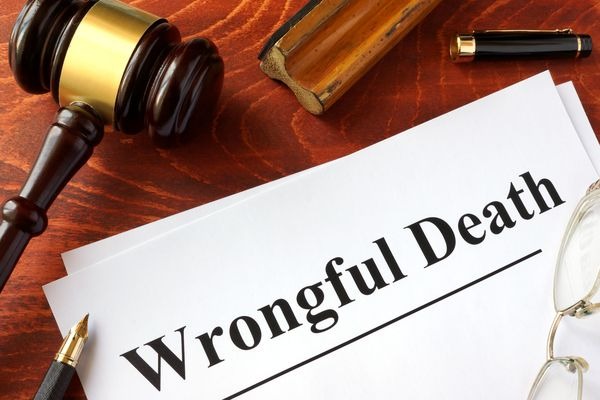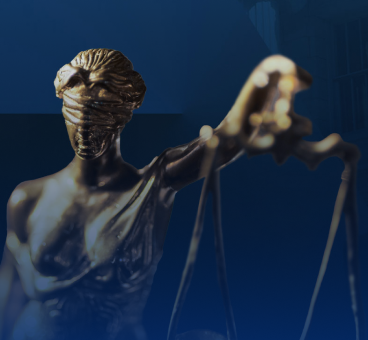
Under Florida law, if you’ve lost a loved one because of negligence or wrongdoing of another party, you may be entitled to receive compensation through a wrongful death lawsuit. Filing this kind of lawsuit can help your family recover from the financial injuries that you have suffered and provide an important sense of justice and closure.
If a loved one lost their life as a result of someone else’s negligence, you should contact a wrongful death attorney as soon as possible to discuss your options. Depending on the circumstances of the death and your relationship to the victim, you may be eligible for financial compensation.
Know the Difference Between Wrongful Death and Homicide
Because wrongful death and homicide both involve one or more individuals causing the death of another human being, people often get the two confused. Wrongful death is a type of civil lawsuit that the family of a deceased person can file to obtain financial damages from the responsible party. Homicide is a criminal charge that the government pursues against an individual who caused the death of another.
Another common distinction between homicide and wrongful death is that homicide usually has an element of intent, whereas wrongful death often arises out of a negligent act that causes the death of another. If a person is killed as a result of homicide—an intentional act by the killer—the survivors have the right to sue. However, insurance will not cover intentional acts and the killer would need to have recoverable assets to succeed. In the case of negligent conduct where a person causes the death of another, there is often insurance available to compensate the survivors with a far greater chance of actually being able to collect on a Judgment. This latter situation even applies where there is gross negligence, such as drunk driving that causes the death of another.

What Constitutes Wrongful Death in Florida?
The state of Florida considers a death wrongful when it’s caused by a wrongful act, default, negligence, or breach of contract or warranty by another person. When the death is legally considered someone else’s fault, a wrongful death lawsuit can be pursued to compensate for injuries sustained by the victim and their family.
Some common examples of incidents that can lead to a wrongful death claim include:
- Car crashes and other negligence-based accidents
- Defective products
- Medical malpractice
- Accidents at work
- Plane crashes
However, there are several other events that can lead to a wrongful death. The general rule is that if the incident would have entitled the victim to sue the responsible party if they had not died, a wrongful death claim can be pursued if they are killed.
Who Can File a Wrongful Death Suit in Florida?
While some states allow the victim’s relatives to file a wrongful death suit, in Florida, the personal representative of the deceased person’s estate must pursue the claim. This doesn’t mean that the personal representative is entitled to receive the proceeds of the lawsuit. Rather, the personal representative must recover all available damages to benefit the victim’s surviving family and/or the estate. The personal representative must also identify all the deceased person’s potential beneficiaries when filing the complaint, along with their relationship to the victim.

What Steps Are Involved in a Wrongful Death Suit?
A wrongful death suit officially begins when it’s filed in court. Your attorney files a complaint in the proper court, which includes the allegations against the responsible party (called the defendant) and a demand for the damages you’re seeking. Once the complaint is filed in court, you need to follow the court’s process for notifying the defendant about the lawsuit and what you’re claiming. The defendant has an opportunity to file a written response to your allegations with the court.
The next step in the lawsuit is called discovery. During this stage, both sides can request information about the case from each other. If the defendant refuses to hand over information or documents that you’re entitled to receive, the court can issue an order requiring them to do so. This stage also likely includes depositions, which are out-of-court proceedings where witnesses must testify under oath and answer questions from attorneys for both sides.
After discovery concludes, if the sides have not reached a settlement agreement, the case goes to trial. While most cases settle before reaching a trial, it’s essential that you partner with a wrongful death lawyer who isn’t afraid to go to trial to represent you.

What Damages Can You Recover in a Suit?
Wrongful death damages you can recover in a suit vary depending on your relationship to the victim. According to Florida law, the decedent’s children, spouse, parents, blood relatives, or adoptive siblings who depended on the victim for support may be considered the deceased person’s “survivors” depending upon the specific circumstances of each case. Precisely who is a “survivor” is controlled by Florida’s Wrongful Death Act.
Each survivor can receive damages for lost support and services from the date of the victim’s injury to their death and future loss of support from the date of death. Damages for medical and funeral expenses incurred as a result of the decedent’s injury or death may be pursued by any survivor who paid them.
On top of damages for lost support, surviving spouses can also recover damages for loss of the victim’s companionship and protection, as well as for pain and suffering from the date of injury. Children under the age of 25 or all children, if there’s no surviving spouse, can claim damages for lost parental companionship and guidance and for pain and suffering from the date of injury. However, the exception for all adult children to be able to claim does not apply when a person’s wrongful death is the result of medical negligence.
If the victim is under 25 years old, each parent can receive damages for mental pain and suffering from the date of injury. A parent of a child who is at least 25 years old can also get compensation to recover from mental pain and suffering if there are no other survivors.
Finally, the personal representative can recover damages on behalf of the estate for lost earnings from the date of injury to the date of death. The estate can also pursue damages for lost future business or income, including pension benefits, which the deceased person might reasonably have expected to leave their heirs if they had lived to their full life expectancy. These damages are defined as loss of prospective net accumulations of an estate, which might reasonably have been expected but for the wrongful death.
Discuss Your Case With a Florida Wrongful Death Attorney
If someone you love has died in an accident or another incident that was someone else’s fault, the skilled wrongful death lawyer in Boca Raton can help you pursue the compensation you’re entitled to receive. Our knowledgeable lawyers have vast experience litigating wrongful death cases in Boca Raton, Florida, and can confidently advise you on pursuing damages for the loss of your loved one. Contact us online or call us at 844-443-3529 to request a free case review.

